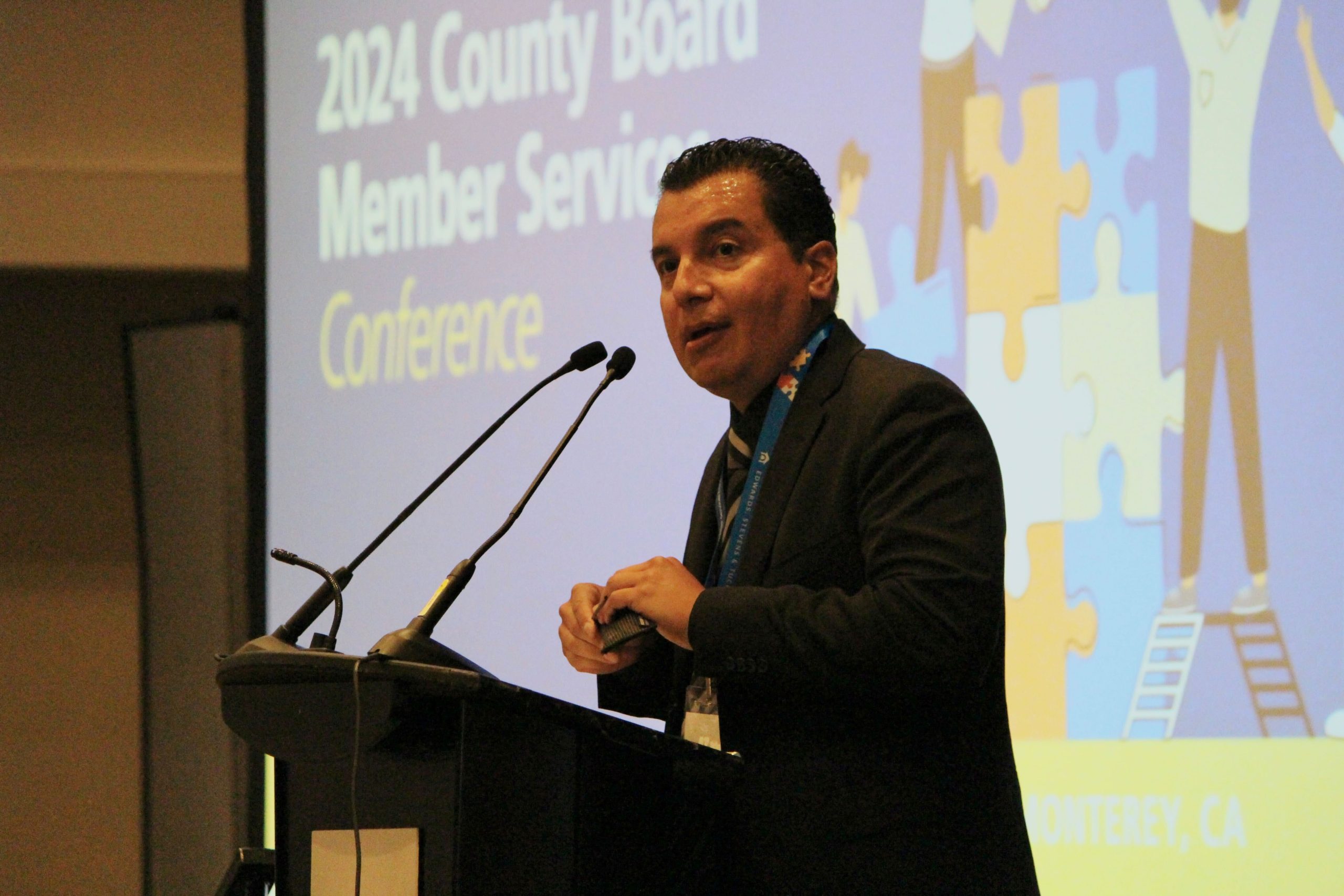More than 370 board members and superintendents representing school districts and county offices of education across the state came together March 15–19 for CSBA’s Legislative Action Week to meet with their state senators and assemblymembers — all from the comfort of their own homes and offices.
“No one will advocate for us unless we are also willing to do the work of advocating for ourselves,” said Lori Cunningham, a Cupertino Union School District school board member. “They need to hear the firsthand stories and real-world implications of the decisions they are making in Sacramento.”
In response to the ongoing COVID-19 pandemic, CSBA adapted its flagship advocacy event to allow school governance leaders to safely advocate at the Capitol via a full week of virtual meetings. The virtual format and extended timeline allowed a record number of attendees to meet with legislators and their staff and discuss the most pressing issues facing their schools and students.
Lodi USD board president Ron Freitas appreciated the opportunity to connect with legislators. “Public service, such as with school boards, requires developing relationships with community stakeholders,” he said. “Legislative Action Week created a unique opportunity to build these relationships and create open channels of dialogue going forward.”
Top of mind for board members: State budget and COVID-19 liability
Board members’ local perspective was especially valuable as the Senate and Assembly continue to develop the state budget for 2021–22. Those participating in Legislative Action Week were able to share their feedback on the budget plan Gov. Gavin Newsom proposed in January and advocate for the needs of their schools and students.
Of particular importance to local budgets stretched thin during the COVID-19 crisis was the call for the state to fully retire all funding apportionment deferrals, which were made last year on the assumption that an economic downturn would lead to a drop in Proposition 98 funds. That reduction never materialized. With the need for deferrals negated and the money available now, school leaders pushed for their representatives to pay off all of the deferrals before redirecting those funds to new programs and services.
Board members also spoke with their legislators about the need for liability relief for schools following public health guidelines during the COVID-19 pandemic — a concern that is top of mind as more schools return to in-person instruction this spring. Many LEAs have been notified by their insurers that their existing policies do not cover COVID-related claims and judgments, and neither the Governor’s January budget proposal nor the school reopening deal has so far addressed the liability issue.
Uninsured claims of any size will take away scarce funds from education programs during a crucial time and leave small school districts especially vulnerable — California’s schools need immediate, reasonable and targeted limited liability protection to protect those already stretched local budgets.
Crucial perspectives on legislation
Also on the agenda were a number of key bills under consideration in the Legislature—including several addressing broadband access and the digital divide, an issue that has only grown more urgent during distance learning. Board members were able to share their personal experiences, speaking to the creative ways districts have stepped up to ensure students have what they need to learn online but also the large gaps that continue to persist in access to high-speed broadband. That perspective is crucial as the state considers how best to invest in expanding broadband access for every Californian, and one group of board members found that after sharing their experiences in a meeting, their legislator not only voiced his support for the legislation but expressed interest in becoming a co-sponsor.
Governance leaders also had the chance to speak to two labor-focused bills that, as written, would apply a “one-size-fits-all” approach to personnel administration by restricting local flexibility to make certificated and classified staffing decisions. Members were able to share how these bills would play out on the ground and speak to the consequences of restricting their ability to make locally controlled and locally informed decisions.
As the legislative year continues, the lived experiences and advocacy school board members brought to the Capitol during Legislative Action Week will be pivotal in informing the votes of the senators and assemblymembers as the legislative session moves forward.





